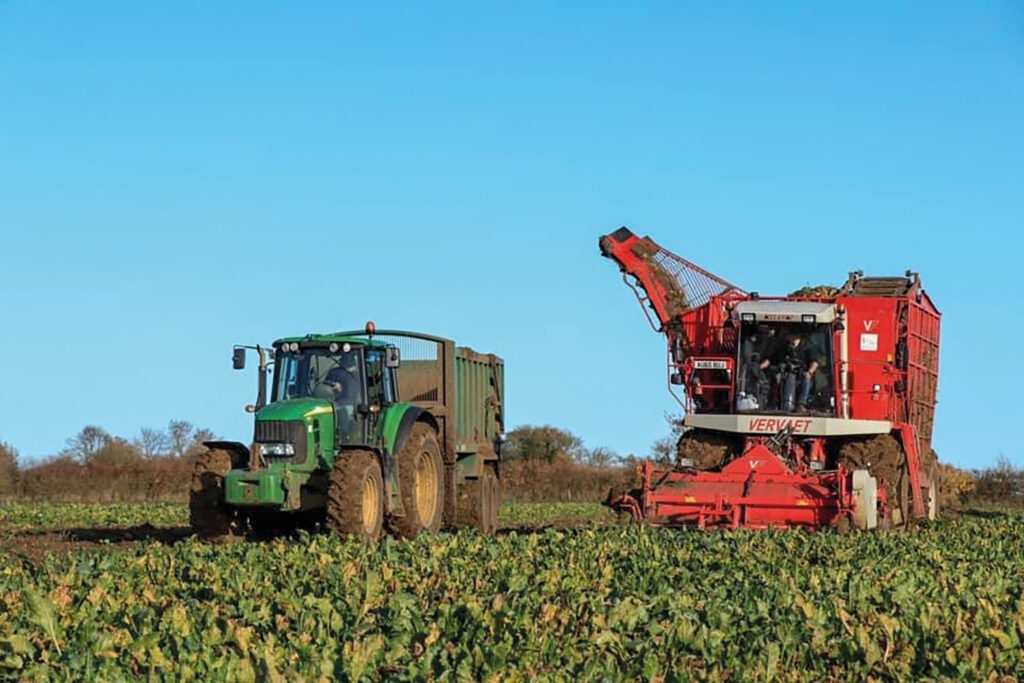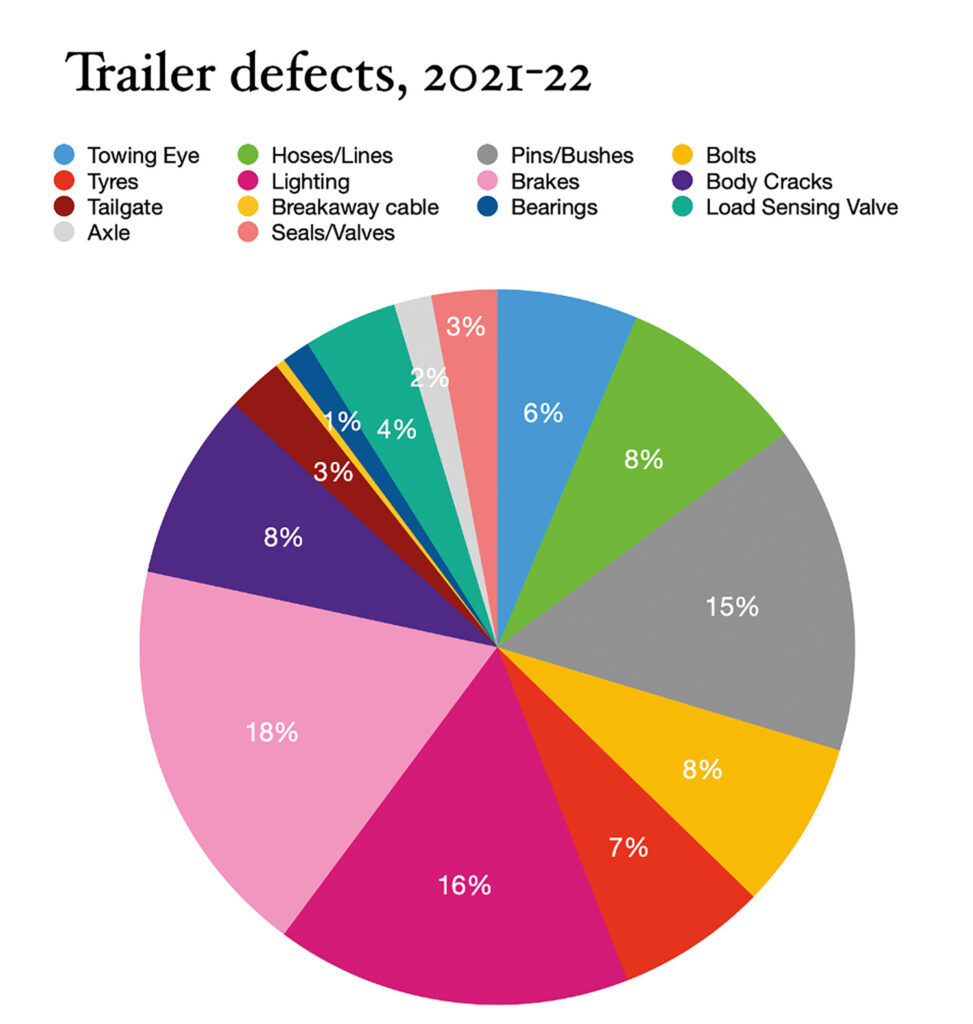Transporting sugar beet safely – guidance on the rules
30th October 2023
With the British sugar beet campaign well and truly underway, many farmers and haulage companies are now transporting sugar beet to the factories. Keeping farmers and industry workers safe is a key topic right now – here are some important things to consider regarding trailer load safety and security.

The nature of farming now means that transporting goods along roads with tractors and trailers is becoming more and more of a necessity. When transporting goods, it is important to consider load security and particularly to ensure that loads are secured in a safe way that complies with the law.
When transporting goods by vehicle or trailer, the law states that you must ensure the load is secured so that the use of the vehicle or trailer does not involve a risk of danger or injury to any person.
The law also states that: “The load carried by a motor vehicle or trailer shall at all times be so secured, if necessary by physical restraint other than its own weight, and be in such a position, that neither danger nor nuisance is likely to be caused to any person or property by reason of the load or any part thereof falling or being blown from the vehicle or by reason of any other movement of the load or any part thereof in relation to the vehicle.”
This means that, regardless of whether a trailer is half full or competely full, it should be sheeted or otherwise secured in an appropriate way. As clarified by the DVSA: “All users, including employers, self-employed farmers and drivers, must assess and manage risk during loading, transport, and unloading agricultural products. This includes considering the risk of load movement during the journey and during unloading, along with other risks such as working at height and manual handling.
“Part 4 of the guidance provides detail on netting and sheeting loads and clearly states that users must sheet and/or net their loads to stop them from bouncing upwards on open vehicles unless the load is secured by other means. In part 1 of the guide, under the section ‘What a load securing system is’, it states this can consist of the structure of the vehicle or trailer.
“In practical terms, this means that a user can consider a load to be secure if their risk assessment shows that a load is below the height of the trailer/vehicle body to the extent that the structure of the vehicle sufficiently secures it without the need for any other security measure.
“The risk assessment should include consideration of action from wind and (more likely important for agricultural product) bounce out of the trailer/vehicle. Overall, users must make sure the load and the way it is secured does not present a risk of danger or nuisance to other road users.
“If loads are not secured adequately, fines and points may be awarded. Drivers and employers are at risk as the law applies to drivers and anyone who causes or permits the use of vehicles deemed to be unsafe.”
The DVSA has advised that roadside examiners will take a pragmatic approach, but action will be taken if loads are found to be unsafe.
But trailer safety goes much further than just load security. Trailer maintenance in general needs to be carreid out correctly and proactively.
Farmers Guide spoke to trailer safety campaigner Jane Gurney, founder of the Tilly trailer Pass and #headtotow app, following the launch of the Root Crop Campaign 2023 #RCC23, who commented: “It’s of the utmost importance that farmers and contractors are aware of and act on their legal requirements during the autumn carting season. Many trailers are being submitted for inspection, service and certification, but still this leaves us with trailers of varying ages that are not being presented for an annual inspection in accordance with the HSE Regulation 5 (www.legislation.gov.uk/uksi/1998/2306/regulation/5).
“Our latest statistics come from the farmers who are being proactive, the ones that are submitting their trailers for an inspection. So, what is happening to the remaining seen working on and off the farm?

“A healthy maintenance program should never be seen as an option when owning or operating machinery. We are all aware of the facts and that there is a legal requirement to comply, but it seems that misinformation is our industry’s biggest stumbling block.
“We also see a lack of training when operating an agricultural or indeed any size trailer between the ring-fenced farm and highway. The point of compliance means we can all prosper from each other’s safety.
“Maintenance pre-harvest not only reduces the risks of incidents but also improves the performance of your machines. Trailers of all ages are submitted for an overhaul, and that investment can limit the amount of time lost when equipment goes wrong in the middle of harvest.
“When it comes to load security, straps must be in good condition – not worn or frayed. They must be sufficiently rated to the weight of the load, and lashing straps should be used to secure loads rather than ropes unless they are demonstrably rated.
“To follow best practice, all loose loads should be sheeted to prevent loads from bouncing or blowing out – whatever the type of trailer you use.
“You must check your load is secure every time you take your trailer out whether for a short or a long journey.
“There is plenty of help available, but accessing misinformation can cost lives. We always recommend you ask for professional qualified advice – contact us at https://tillypass.co.uk.”



